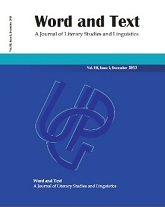Shit, No Present: Faecetious Serrano
Shit, No Present: Faecetious Serrano
Author(s): Hélène CixousSubject(s): Literary Texts
Published by: Universitatea Petrol-Gaze din Ploieşti
Keywords: present; photography; faeces; matter; Serrano; Jean Genet
Summary/Abstract: “Pas de cadeau”, subtitled “Serrano fècétieux”, was commissioned as an introductory essay to the exhibition catalogue to Andres Serrano’s photographs at the Galerie Yvon Lambert, Paris, in 2008. It was first published in a two-column layout with an English version prepared by Laurent Milesi in consultation with the author. The French original was subsequently reprinted in a special issue of La règle du jeu (43) on the relation between literature and contemporary art (Paris: Grasset, 2010). The original translation, “Shit, No Present: Faecetious Serrano”, also appeared in Hélène Cixous, Poetry in Painting: Writings on Contemporary Arts and Aesthetics, ed. Marta Segarra and Joana Masó (Edinburgh: Edinburgh University Press, 2012), 85-108. We are delighted to be able to make this essay more easily available in a revised and fully annotated translation kindly prepared by Laurent Milesi for this special edition of Word and Text. The exhibition of Serrano’s work, which Cixous’s essay responds to, was comprised of sixty-six large-format close-up colour photographs of faeces. The images depict excrements of different creatures, some carrying playful titles, such as “Bull Shit”, “Self-Portrait Shit”, or “Holy Shit”. This might serve to contextualise some aspects of Cixous’s essay, included here as a stand-alone piece because it offers thought-provoking perspectives on the multiple bodily limits which its subject matter exposes. The additional annotations provided by the translator especially elucidate the scatological double entendres in the text. Asterisks (*) indicate those numerous English words or phrases used in Cixous’s original French text, with the exception of ‘shit’, which she kept in English throughout. Cixous’s idiosyncratic punctuation has been respected as far as possible; especially what Jacques Derrida called her “punctual depunctuation” to designate how she removes final stops at the end of some sentences for rhythmic effects.1 We are grateful to Hélène Cixous, Laurent Milesi and the Galerie Yvon Lambert for permission to publish this revised translation.
Journal: Word and Text, A Journal of Literary Studies and Linguistics
- Issue Year: III/2013
- Issue No: 02
- Page Range: 151-171
- Page Count: 21
- Language: English

